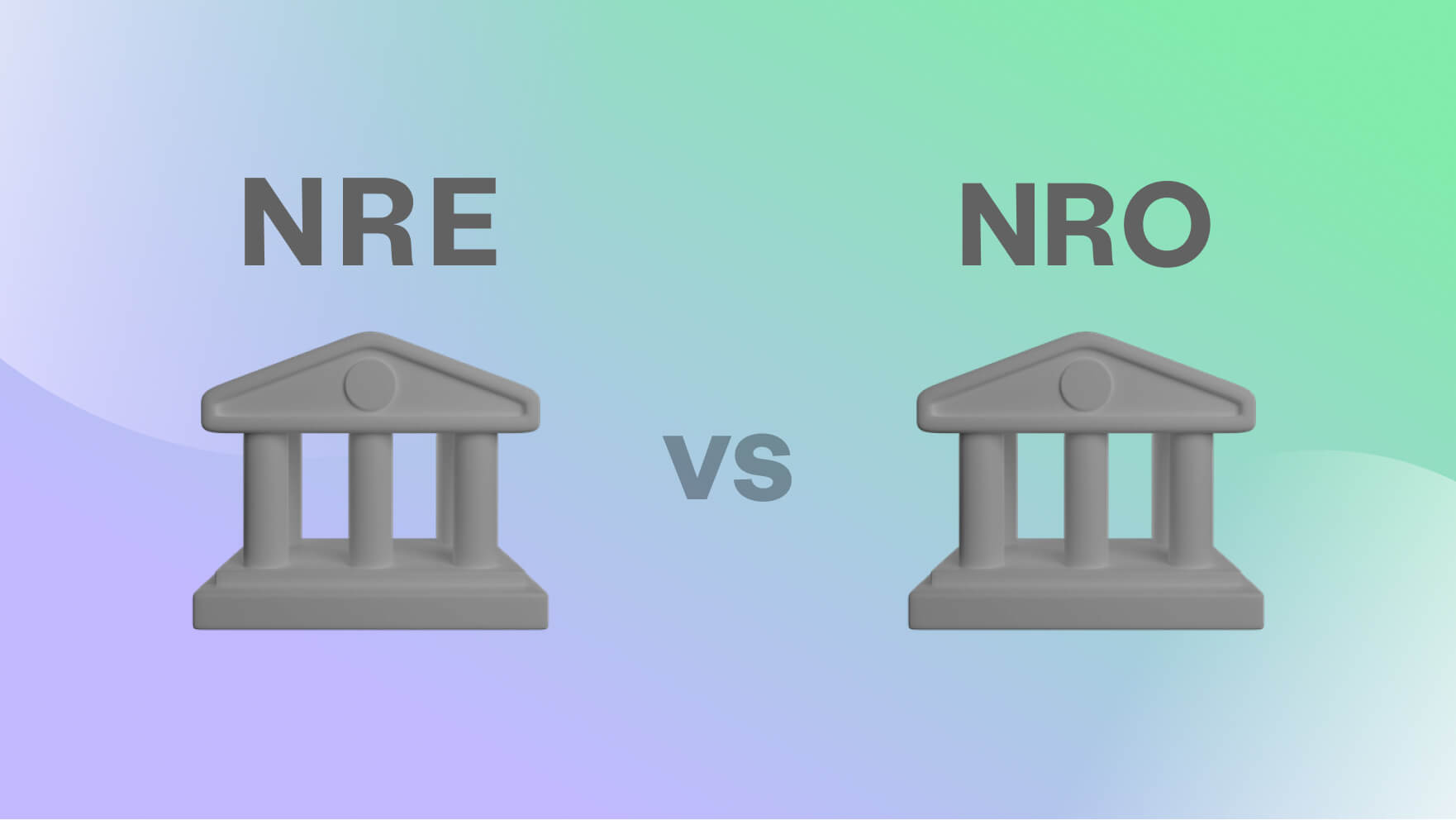 WhatsApp
WhatsApp
 Call Us
Call Us
 Email Us
Email Us
 Whatsapp Community
Whatsapp Community

Non-Resident Indians (NRIs) need efficient and compliant methods to manage their income earned abroad or in India. Two essential accounts offered to NRIs are the Non-Resident External (NRE) Account and the Non-Resident Ordinary (NRO) Account. Both of these accounts serve different purposes and come with their own benefits and limitations. Here's a detailed guide to help you understand their differences and choose the right one for your needs.
As per the Foreign Exchange Management Act (FEMA), NRIs cannot hold a regular savings account in India. Instead, they are required to convert their accounts to either an NRE or NRO account depending on the type of income they generate.
Continuing to use a resident savings account after moving abroad can result in hefty penalties. It’s essential for NRIs to understand the distinctions between NRE and NRO accounts to make informed decisions about their financial strategies.
An NRE account is an Indian Rupee-denominated account where NRIs can deposit their foreign earnings. It allows full repatriation of both principal and interest earned, without needing any special permissions. This account is especially useful for NRIs who wish to manage their foreign income while ensuring tax-free interest earnings in India.
An NRO account is designed to help NRIs manage their income earned within India, such as rental income, dividends, or any profits from investments. Although the funds in the NRO account are held in Indian rupees, transferring them back abroad is subject to a repatriation limit of USD 1 million per financial year.
To help you visualize the key differences between NRE and NRO accounts, here’s a comparative table:
| Parameters | Non-Resident External (NRE) Account | Non-Resident Ordinary (NRO) Account |
| Source of Deposit | Earned outside of India | Earned outside of India and within India |
| Type of Accounts | Savings, Foreign Currency Non-Resident Account (FCNR) and fixed deposit | Savings and fixed deposit |
| Tax Benefits | Tax-free | Earned interest is taxable |
| Can I Send Money Abroad? | Yes, money is fully repatriable | Yes, but up to $1 million annually, subject to taxes paid and form 15CA/CB |
| Joint Account Allowed? | Yes, with NRI or Indian Resident | Yes, with NRI or Indian Resident |
| Effect of Exchange Rate | Yes, because foreign currency gets converted to Indian rupees while depositing | No impact since deposited money lies in Indian rupees |
Yes, it is possible to transfer funds from your NRO account to your NRE account. However, this process is subject to the USD 1 million per financial year repatriation limit and requires compliance with certain tax regulations. You will need to submit Form 15CA/CB, certified by a chartered accountant, before initiating the transfer.
When planning to invest in India, most NRIs prefer an NRE account due to its tax-free nature and full repatriability of funds. The interest earned in NRE accounts is not subject to tax, making it a more appealing option for those looking to grow their savings through investments in India. Moreover, the NRE account provides ease of transferring money abroad without any limitations.
On the other hand, the NRO account is better suited for managing local expenses or for those who have income sources in India that need to be retained within the country.
1. Which account should I use for family expenses?
Use your NRO account to pay for expenses in India, such as bills or family maintenance.
2. Is the interest earned on these accounts taxed?
Interest on NRE accounts is tax-free, while interest on NRO accounts is subject to TDS.
3. Can I repatriate funds from my NRO account?
Yes, but it’s limited to USD 1 million annually, subject to tax compliance.
4. How do I transfer money to these accounts from abroad?
You can use SWIFT transfers from overseas banks or exchange houses to remit funds to both NRE and NRO accounts.
5. Which bank should I choose for NRE/NRO accounts?
Opt for banks with strong digital banking systems, as ease of account management is essential when you're residing abroad. Look for banks offering a full range of services, including investment options, security, and fraud protection.
Both NRE and NRO accounts are essential tools for NRIs to manage their income and investments in India. Choosing the right account depends on whether you're dealing with foreign earnings or local Indian income. NRIs looking for tax-efficient, repatriable savings will find the NRE account more beneficial, while those needing to manage Indian income should consider the NRO account.
For more financial advice and investment tips tailored to NRIs, explore our blogs on dineshaarjav.com.







Stay in the loop, subscribe to our newsletter and unlock a world of exclusive updates, insights, and offers delivered straight to your inbox.